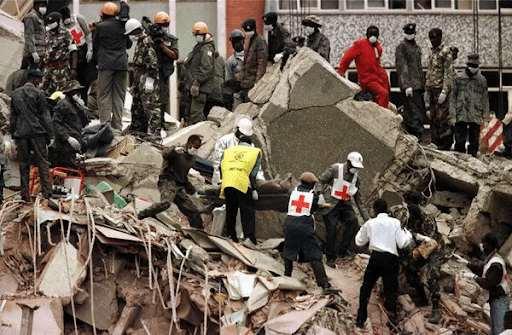Riz Khaliq and Doreen Oport were both working at the American Embassy in Nairobi on Aug 7, 1998, when a truck bomb blasted through the compound. Mr Khaliq was knocked unconscious and Ms Oport trapped beneath fallen rubble.
Decades later, both periodically pick shreds of glass and metal from their bodies as embedded debris from the blast continues to figure its thanks to the skin. Both are also naturalized U.S. citizens. There, the similarities end. Because Mr Khaliq was already an American citizen at the time of the attack, he’s eligible for a minimum of $3 million in compensation as a part of a tentative State Department settlement with the government of Sudan.
Ms Oport was then a citizen of Kenya, so she stands to receive $400,000 from Sudan, which had harboured Qaeda militants who bombed the U.S. embassies in Kenya and Tanzania in near-simultaneous strikes. Mr Khaliq and Ms Oport are among many victims and relations at the middle of a yearslong process to get rid of Sudan from a U.S. government list of state sponsors of terrorism.
Doing so will open the way for the East African country to manoeuvre toward economic stability, and potentially greater democracy, after a generation of oppression. Yet the payment disparity between victims who were Americans at the time of the bombings and people who weren’t has delayed — and will derail — the deal. It has divided Congress and created a rift between the victims and their lawyers because the US grapples with the way to correct unequal or discriminatory standards in its system.
Inputs from Acqro News




